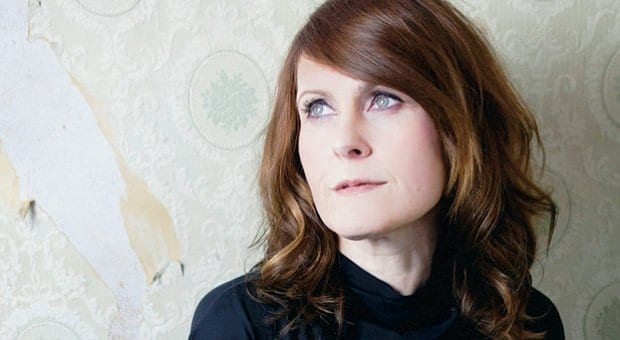“When it comes down to it, we can all be a bit of a cunt sometimes, know what I mean?” Alison Moyet says over the phone from Manchester during a promotional stint for her latest solo album, The Minutes. “And I don’t want to be frightened to display uglier emotional characteristics in music.”
At 52, the British pop singer/songwriter is in a mood to reflect on the moments in life that may at first seem, as she puts it, “un-thrilling, unappealingly individual.”
Or, sometimes, ugly — a taboo word in pop music.
“Sometimes people misread me. If I say something about myself which is not complimentary, the assumption is that I am without confidence,” she explains. “And I think the opposite is true. I think that people who are unable to count their failings are the ones that aren’t confident.”
Moyet was first known as the bluesy, emotionally charged voice of Yaz (or Yazoo in the UK), the synth-pop duo she formed in 1981 with former Depeche Mode songwriter Vince Clarke. The pair produced two albums and a string of beloved, genre-defining hits, including “Only You,” “Nobody’s Diary” and “Situation,” but split after only 18 months.
Clarke went on to form The Assembly and then Erasure, while Moyet fell into a successful solo career, selling millions of albums and scoring hit singles in the UK and Europe during the mid-1980s. Despite her acclaim across the Atlantic, she remains a cult act in North America and has not performed here since Yaz’s reunion tour in 2008.
She says she now feels “estranged” from much of her early solo material on account of her reluctance to fully embrace pop stardom and her greenness in the music industry at the time.
“I was naively shocked when I realized that when you have a lot of success, it’s much harder to then move on to the next thing,” she recalls. “And I’ve never been desirous to replicate anything that I’ve done. I haven’t wanted to make the same album twice, or to have the same experience twice.”
However, recording original music free from the expectations of commercially minded label executives proved more difficult as time marched on.
Released from her contract withSony a decade ago, Moyet determined to make music that did not adhere to commercial trends or fall victim to nostalgia. She found that labels were reticent to sign her for anything other than a covers album, so she opted to co-write and produce The Minutes independently with Guy Sigsworth (Björk, Madonna) and worried about how to release it afterward. (It came out in May via Metropolis Records/Cooking Vinyl.)
The record marks her return to electronic music, a genre she avoided throughout the 1990s. “The beat became so king that the voice was always crammed into it in a different tempo and different timing,” she explains. “I thought, ‘For fuck’s sake, just take the voice out of it and listen to the track’ because it was just a horrible mess.
“The great thing about working with Guy, which wasn’t dissimilar to working in Yaz,” she continues, “was there was still an integrity to the song and the voice.”
Early on in the writing process she decided to ditch romantic songs in favour of musings on age, self-acceptance and a broad, humanistic approach to the concept of love. For example, she describes the lead single, “When I Was Your Girl,” as a dialogue with her younger self wherein she looks back on the romantic notions of eternity and perfection that once seemed so all-encompassing in her youth.
“Romance is not a driving force in my life,” she explains, adding that her songwriting on the subject has become wryly — and sometimes sneeringly — observational as a consequence.
“Ultimately, I have to make a record that I am going to feel proud about, I’m going to be able to fight for and I will feel the same way about in years to come,” she says. “That is my motivation. And yes, that means that I will be making choices that make myself less approachable or less commercial.”
This fall, Moyet will tour continental Europe, the UK, Ireland and the United States (sadly, no Canadian cities are on the itinerary) in support of The Minutes and then headline at London’s Royal Albert Hall in April. Beyond that, she says, she will continue to make music for as long as she retains confidence in her abilities as a singer and songwriter.
“I didn’t expect that I’d have a long career,” she says. “But I’m so glad that I did because I know that I’m a far better act as a 50-year-old than I was as a 23-year-old.”

 Why you can trust Xtra
Why you can trust Xtra


